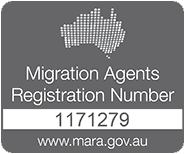I’d love a dollar for every time I’ve been asked this week about visa processing times. Even when things are ‘normal’, visas can take seemingly forever to be granted. What’s the situation now, in the distinctly “un-normal” COVID environment? Will your visa application ever be processed?
To answer this question, we have to go back and consider the situation in Australia right now.
Australia is doing well to contain COVID-19
I’m quite proud of how our country is responding. It’s not easy, when you live in a place with superb weather, and the focus is on lots of outdoor activities and sport, to tell everyone to just stay home. All those beaches empty over the Easter long weekend – tragedy! No one at the moment can take advantage of the ‘Great Aussie Lifestyle’.
Even worse… ANZAC Day – a day where the nation remembers the sacrifices of our troops – commemorative services have been cancelled. This is completely unprecedented.
But, our isolation efforts are paying off. In a country of 25 million people, we have had around 6,300 COVID cases as I write this, of which 59 people have sadly passed away. More than half of all patients have now recovered. Compared to many countries, we are tracking exceptionally well.
There is a long way to go, however. State and Federal Governments are doing a huge amount of work in an attempt to manage the situation; to resource the healthcare system, and to support the economy.
The Government has re-allocated resources.
The Australian Government has made some far-reaching decisions about resourcing. There are many government employees who currently have to work from home; others are still attend their offices. Some have been re-assigned to more urgent tasks on a temporary basis.
The Department of Home Affairs is a large portfolio which is responsible not only for visa processing, but also for border control. You can imagine how many resources are required at the moment to manage our borders.
Another major consideration for the Department is the number of people onshore who are holding temporary visas, and may not be able to leave the country before their visa expires, due to lack of availability of transport, and border closures in other countries.
These, plus other considerations, help to explain the current status of visa processing.
Visa Processing Priorities
People who are onshore are the highest priority for the Department of Home Affairs. We are seeing a continuation – and even in some cases a quicker response – to visa applications lodged while the applicant is in Australia. This is because, clearly, it is not in anyone’s interests to become ‘unlawful’ when a visa expires. Temporary visa holders may have a couple of options to consider, if a new visa is needed.
The processing of offshore applications continues, but is less of a priority during the crisis. This also applies to people who are resident in Australia and have lodged a visa that can only be granted while they are outside Australia – for example, a Contributory Parent Visa (subclass 143). We know that support services, such as visa medicals and police clearances, may be difficult to access, depending on the country. This could make it difficult for offshore applicants to meet all criteria prior to visa grant.
To grant a visa to someone who is outside Australia, means that there is a person waiting to enter Australia. With strict travel restrictions and border controls in place, it would send a contradictory message for the same department to both issue a visa, and then to refuse entry!
Granting a visa which has a fixed validity period, could also be counter productive. For example, the Prospective Marriage Visa (subclass 300) has a validity of only 9 months after being granted. What happens if the travel ban is not relaxed for many months? You could lose much of your visa validity period. Far better for it to be granted at a time when you can travel.
There will be times where offshore applications may be processed with priority – a good example is where a person has a critical skill set which may help in the current environment.
Everyone who enters Australia now, has to undergo a period of 14 days enforced isolation. Figures have shown that most COVID-19 cases in Australia, have originated from inbound travellers (including many returning Australians). Given the obvious issues with this, it makes sense that any non-essential travel into Australia is not allowed.
If you do hold a visa and can meet the travel ban exemptions, you may still be able to enter.
Is my Visa in danger because of COVID-19?
There’s every indication at this stage that, when a return to normal occurs, everything will resume as before. Your visa should not lose its place in the queue.
We’d expect that when normality returns, the same criteria will be assessed in the processing of any application, as would have been before. Such as – is this a genuine job; or a genuine relationship?
If you’ve applied offshore for a Parent Visa, you’d know that these visas have a very long processing time anyway, and we have been advised that processing is on hold, for review in May. It would certainly not be wise at the moment for seniors to be travelling around the world, given the high risk environment.
Skilled, Global Talent and Business Visas should still be lodged, if you can receive a nomination (some States have temporarily suspended their nomination process for applicants outside Australia). By the time the travel bans are lifted, many of these cases should be close to processing.
Partner Visas can be a great option at the moment, particularly for people onshore, who will receive a bridging visa with work rights.
Of course, we don’t have any more idea than the next person, about when this so called ‘normality’ will re-appear. But we’re all doing our bit to isolate – with the knowledge that if we all do it, the virus will die a quiet death in our country.
Are you keen for a chat about your visa status or opportunities? We’re waiting to talk with you!





